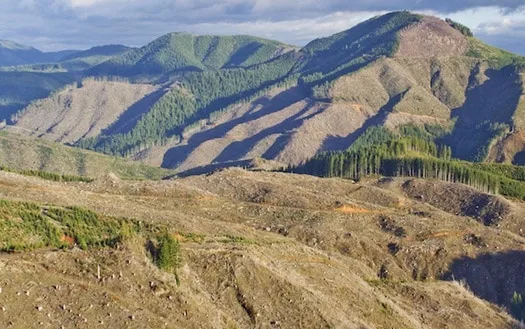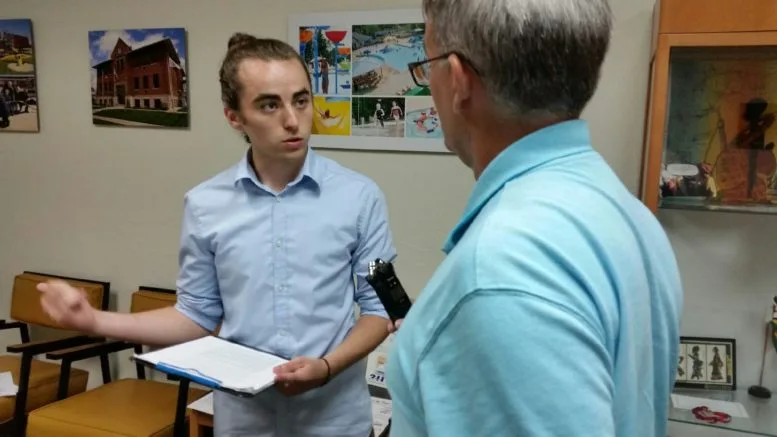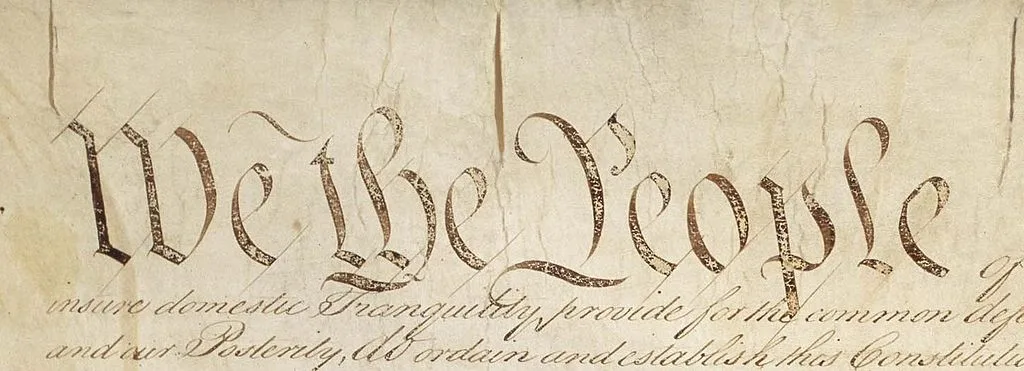Search Results for: rights of nature
Community rights movement grows statewide, despite corporate state efforts to block it
FOR IMMEDIATE RELEASE
CONTACT:
Tish O’Dell, Ohio Community Organizer
CELDF.org
tish@celdf.org
440-838-5272
Broadview Heights, Ohio: Residents of Portage, Medina, and Athens Counties are asserting the people’s right to local community self-government, the right to a healthy environment, and the right to protect themselves from fracking harms through community rights initiatives. County residents began circulating petitions this week to place the rights-based measures on the November ballot.
The initiatives were drafted with assistance from the Community Environmental Legal Defense Fund (CELDF). Ohio residents began partnering with CELDF in 2012, when shale gas drilling and fracking activities threatened a number of communities. Since then, CELDF has worked with Ohio residents who have advanced nearly two dozen rights-based measures, asserting community rights to local self-government, clean air and water, and the rights of nature.
As community rights grows across the state, the oil and gas industry is spending significant funds and enlisting the support of state and local governments to quash the people’s rights. For two years, Ohio counties attempted to place rights-based county charters on the ballot. The measures banned fracking activities as a violation of rights.
Each time, Ohio’s Secretary of State challenged the measures to keep them off the ballot. He has been partially backed by the Ohio Supreme Court, which found technical reasons to block the measures. However, the Court provided only minimal guidance on what would satisfy those technical requirements.
“If the Secretary of State, Supreme Court, and the oil and gas industry think they can make us give up on our rights by keeping us off the ballot, they are wrong,” stated Kathie Jones of Sustainable Medina County. “We realize no one else is going to fight for our right to protect our health and wellbeing. We’re taking a stand not only for us, but for future generations.”
Portage, Medina, and Athens Counties join the City of Youngstown, where residents are advancing two rights-based city charter amendments. The Peoples’ Bill of Rights for Fair Elections and Access to Local Government limits campaign contributions in local elections to registered voters of the city, and places limits on contribution amounts. The Youngstown Drinking Water and Protection Bill of Rights protects Youngstown water.
Residents in Bowling Green and Toledo are also collecting signatures to place community rights charter amendments on the ballot as well.
CELDF’s Ohio community organizer Tish O’Dell stated, “Not only is community rights growing to stop fracking, but the people are expanding it beyond fracking issues. They understand fracking, elections laws, minimum wage, and myriad other issues are symptoms of a greater problem: a structure of law and governance that elevates corporate claimed ‘rights’ over the rights of people and nature.”
The Ohio corporate state has placed one more hurdle before residents who advance initiatives. In December 2016, the legislature quietly adopted HB463, granting local Boards of Elections and the Secretary of State the authority to keep any proposed initiative off the ballot if they deem it violates state law or the Ohio constitution. Each of the groups is prepared to address that challenge if it is used to block their measure.
Ohio Communities Part of Growing Movement
Ohio residents are advancing Community Rights as part of the broader Community Rights Movement building across the United States, where other localities are advancing similar measures to establish and protect their rights to a healthy climate, clean air and water, and the right to local community self-government.
Local communities and state Community Rights Networks are partnering with CELDF to advance these fundamental democratic and environmental rights. They are working with CELDF to establish community rights and the rights of nature in law, and prohibit extraction, fracking, factory farming, water privatization, and other industrial activities as violations of those rights. Communities are joining together within and across states, working with CELDF to advance systemic change – recognizing our existing system of law and governance as inherently undemocratic and unsustainable.
About CELDF — Community Environmental Legal Defense Fund
The Community Environmental Legal Defense Fund is a non-profit, public interest law firm providing free and affordable legal services to communities facing threats to their local environment, local agriculture, local economy, and quality of life. Its mission is to build sustainable communities by assisting people to assert their right to local self-government and the rights of nature.
Additional Information
For additional information, contact CELDF at info@celdf.org. To learn about the Ohio Community Rights Network, visit ohiocrn.org. To learn about the Community Rights Movement, visit www.celdf.org. Follow us on Facebook at www.facebook.com/CELDF/ and Twitter @celdf.
###
FOR IMMEDIATE RELEASE: MARCH 8, 2017
Contact: Sandy Bolzenius, bolzenius.2@osu.edu, 614-843-6170
COLUMBUS – Columbus Community Bill of Rights (CCBOR), an organization of local people committed to protecting our water, air, and soil from fracking and its toxic and radioactive waste, will deliver over 10,000 signatures for their initiative to the Columbus City Clerk at City Hall (90 W. Broad Street) this Friday, March 10, 2017, at 1 PM. Asserting the inalienable rights of local communities to pure water, clean air, and safe soil, the Columbus Bill of Rights ordinance will provide our city and its officials with the mandate and the authority to protect Columbus residents and our natural environment from potentially harmful byproducts of the fracking industry.
The Columbus Community Bill of Rights group used the initiative process as outlined in the Columbus City Charter and in full accord with the Ohio State Constitution. The latter guarantees our “inalienable rights, among which are those of enjoying and defending life and liberty … seeking and obtaining happiness and safety.” It also affirms that “all power is inherent in the people. Government is instituted for their equal protection and benefit and they have the right to alter, reform or abolish the same, whenever they deem it necessary.” Article 1, Sections 1 and 2
“Based on research our community members have done on accidents and spills from the drilling industry in other parts of the country affecting people’s water supplies, the people have decided that ‘we deem it necessary’ to alter and reform our law within the City of Columbus in order to protect our water here” said Carolyn Harding, a founding member of CCBOR. “We sincerely hope that city council will realize their role is to protect the health, safety and welfare of their residents above all else and consider the more than 10,000 city residents who agree with us.”
Members of the Columbus Community Bill of Rights group will be present at the event. All have volunteered their efforts to the ordinance petition drive due to concerns over the safety of Central Ohio’s water, soil, and air and the health risks that fracking and its by-products pose to all Central Ohioans.
Given the thirteen injection wells of toxic and radioactive waste in our watershed area, CCBOR member Sandy Bolzenius expects city council members will give prompt and serious consideration to the immediate adoption of the ordinance. “Think Flint,” she said, referring to the lead pipes that poisoned the Michigan city’s water, making it unsafe to consume or use in any way. “I’m most worried about our youngest residents whose brains and neurological systems are still developing. Children are especially vulnerable to the harmful effects of radioactive chemicals.” CCBOR members recognize that once the water and children are poisoned, the messes left behind cannot always be cleaned up through lawsuits and settlements.
The Community Environmental Legal Defense Fund turned twenty years old this month! Launched by two people in November 1995 in a small, rural township in Pennsylvania, CELDF has grown into ten staff, a dozen attorneys, and countless volunteers working in ten states.
What began as a mission to help communities fight permits for unwanted incinerators and trash dumps, has evolved into a mission to build sustainable communities by assisting people to assert their right to local self-government and the rights of nature.
That’s a long way to come in two decades, and we’ve done it in partnership with communities in more than a dozen states. Regardless of the single issue, CELDF and the hundreds of communities we’ve worked with have learned that we don’t have a trash, incinerator, Keystone XL, fracking, or other problem; what we have is a democracy problem – the failure of our governmental system to recognize the self-governing authority of the people in the places where they live.
I’m reflective as I sit on a plane headed to Denver for a second national gathering of community rights activists. Twenty years ago we were fighting permits…. Today, we’re working to finalize a federal constitutional amendment that would recognize a federal constitutional right to local self-government. We’ve had many milestones getting here:
- Assisting the people of Wells Township, Pennsylvania, to draft and adopt the nation’s first CELDF Ordinance in 1999;
- Assisting the people of Licking and Porter Townships in Pennsylvania in 2002 to draft and adopt the country’s first local laws which openly and directly challenge corporate “rights;”
- Launching CELDF’s “Democracy School” in 2003, which has now graduated close to 3,000 activists, community leaders, lawyers, and municipal officials through its two day, intensive training focused on local self-government;
- Assisting the people of Tamaqua Borough in Pennsylvania in 2006 to draft and adopt the nation’s first law recognizing the rights of nature and ecosystems;
- Defending the first legal challenge to a rights-based ordinance adopted by the people of Blaine Township, Pennsylvania, to stop longwall coal mining;
- Assisting the Pittsburgh City Council in 2010 to unanimously adopt a local bill of rights banning oil and gas extraction within the City;
- Assisting the people of Mora County, New Mexico, in 2013 to become the first County in the U.S. to adopt a local bill of rights banning oil and gas extraction;
- Assisting the people of Spokane, Washington, to propose a Community Bill of Rights and a Worker Bill of Rights for a vote by the people;
- Helping the people of Grant Township, Pennsylvania, to become the first municipality in the country to draft and adopt a new home rule constitution for the Township that contains a local bill of rights banning frack injection wells within the municipality;
- Filing the first-in-the-nation court intervention motion on behalf of an ecosystem, in federal court;
- Assisting Ecuador’s constitutional assembly to draft the world’s first “Rights of Nature” provisions into Ecuador’s Constitution;
- Helping the people of seven states to create state-based Community Rights Networks (CRNs), and to draft and advance new state constitutional amendments securing a state-protected right of local, community self-government; and
- Helping those Networks to draft and propose a federal constitutional amendment securing a federally-protected right of local, community self-government.
Across the U.S., in these twenty years, CELDF has helped close to two hundred communities in ten states to become the beginnings of a national community rights movement – a movement catalyzed by the growing recognition that “we the people” lack the legal authority to decide what happens in our own communities. It is a movement that, in the decades to come, will forever change the relationship between our communities and corporations, and between our communities and our system of government.
As the oil and gas industry recently declared, CELDF’s community rights organizing “is the beginning of a social movement that is greater than just the oil and gas industry, it is a potential game changer for all of corporate America.”
It’s been a long time coming, but it’s finally here. Join us!
 It is with great sadness that we share with you the loss of our friend and colleague, Gail Darrell.
It is with great sadness that we share with you the loss of our friend and colleague, Gail Darrell.
For nearly a decade, Gail has worked to protect communities across New England from corporate and government interests that sought to override the rights of people, communities, and nature.
As the New England Community Organizer with the Community Environmental Legal Defense Fund (CELDF), she became a fearless leader for local democratic rights, for the rights of people to self-govern, and for the rights of nature to live and flourish.
Gail spearheaded the effort in her own hometown of Barnstead, NH, to become the very first community in the United States to prohibit corporations from privatizing water from local aquifers. Communities in both New Hampshire and Maine soon followed in Barnstead’s footsteps. Her work took her from town to town, where she would share the “Barnstead Story,” educating and inspiring people to organize in their own communities.
Gail inspired all of us at CELDF, with her dedication and belief in the rights of all people to have the authority to decide what happens in the places where they live. Further, she believed that the rights of people and communities should never be subordinated to the interests of corporate and government decision makers whose interests are not their own.
For believing that community rights should be elevated over corporate “rights,” she was called “batshit crazy” and “radical.” She was harassed and threatened. And yet, as a leader in the growing Community Rights Movement, Gail never let fear stand in her way.
Gail brought a gentle fierceness into our lives. As she once said:
I will continue to work to make humans more important than corporations. To have a clear conscience. I did what I could after I got educated. I can tell that to my kids. It’s my duty. I’ll take that charge and do the best I can.
Her loss will be deeply felt, and she will be well missed. We send our thoughts and our best wishes to her family.
From all of us at CELDF, please join us in remembering and celebrating Gail Darrell.
Posted by Thomas Linzey and Jeff Reifman on October 11th, 2011
How Pittsburgh, Spokane and other communities can point the Occupy movement towards elevating rights for people and nature over corporate rights
The history of populist uprisings like Occupy Wall Street isn’t a reassuring one. The last one to have any staying power was the populist farmers revolt of the 1800’s, and it was aggressively dismantled by everyone from the two major political parties to the banks and railroad corporations of its day.
Most revolts are snuffed out well before their efforts impact the political scene – not because their ideas and issues aren’t relevant, but because the major institutional players within the system-that-is rapidly attempt to snag the power and energy for their own. In the eyes of the Democratic Party or the national environmental groups, this revolt is merely seen as an opportunity to assimilate newly emerging troops back into those groups’ own flaccid and ineffective organizing. After all, if those institutional groups have actually been effective all of these years, why the need for a revolt at all?
It’s when these revolts become mainstreamed by their “friends” within existing institutions that they lose their steam and become just one more footnote in an endless stream of footnotes of revolts that have burned out early. The pundits and “experts” are already trying to put this revolt in its place. A recent New York Times editorial
declared that it “isn’t the job of these protesters to write legislation.” That, the editorial argued, was what the national politicians need to do. The Times couldn’t be more wrong.
If the Occupy movement is to succeed over time, it must follow the lead of community rights building efforts that have begun work to dismantle the body of law that perpetually subordinates people, communities, and nature to wealthy corporate minorities.
For example:
• In November 2010, Pittsburgh’s city council stripped corporations seeking to drill for natural gas of their corporate personhood rights, protections of the commerce and contracts clauses of the U.S. and Pennsylvania Constitutions and the right to pre-empt community ordinances with federal or state law.
• In March 2011, for the first time since Ecuador added rights for nature to its Constitution, a judge stopped destructive corporate development in a suit brought by ordinary residents on behalf of the Vilcabamba River.
• This November, Spokane residents will vote on Proposition One which 1) grants neighborhoods complete control over local development, 2) affords rights and protections to the Spokane River and Aquifer, 3) grants Constitutional protections to employees in the workplace and 4) makes People’s right’s superior to corporate rights.
These communities, and many like them, have begun adopting Community Bills of Rights, which elevate the rights of people and nature above the rights of corporations and their minority of decision makers. It’s not another exercise in putting out good-sounding statements; but a seizure of governmental lawmaking authority to make government work on behalf of a majority, rather than continuing to serve as a colonized entity to corporations.
Instead of diluting themselves to meet the needs of already-institutionalized groups who aren’t going anywhere; the Occupy folks must move in the opposite direction – deepening and strengthening their effort by demanding structural change in how the current system operates. That means moving away from the institutional advocacy promoted by mainstream progressive organizations (which has proven to be utterly ineffective against the type of consolidated wealth that makes decisions about every aspect of our lives today) and towards a new form of advocacy and activism. Rather than negotiating the terms of our de-occupation, we must rewrite the very rules under which our system operates.
Mainstream progressive groups have failed by constraining their activities within legal and regulatory systems purposefully structured to subordinate communities to corporate power. Real movements don’t operate that way. Abolitionists never sought to regulate the slave trade – they sought freedom and rights for slaves. Suffragists didn’t seek concessions but demanded the right for all women to vote. The Occupy movement must begin to use lawmaking activities in cities and towns to build a new legal structure of rights that empowers community majorities over corporate minorities, rather than the other way around.
It’s taken a centuries’ worth of manufactured and concocted legal doctrines, so that corporations and their decision makers wield not only our legislatures against us, but also the courts – to protect their property, wealth, and decision-making from popular control. Our country’s wealth inequality did not arise overnight but slowly as the corporate minority eviscerated almost every memory of any democratic system.
They’ve built a system not only which allows those with the most wealth to have the most decision-making power; but one in which even our constitutional rights have now been bestowed onto corporate “persons”; thus insulating them from governing authority.
What’s been happening in communities such as Pittsburgh and Spokane since the early 2000’s is a revolution that anchors itself in basic local, lawmaking powers derived from our innate right to self-government. Residents of over a hundred rural American communities have now seized their local governments (in some cases, literally) by using municipal lawmaking power to recognize rights for nature, to strip corporations of certain claimed rights, and to elevate community decision-making rights above the claimed “rights” of corporate decision makers. In the process, they’ve stopped everything from proposed corporate hog factory farms, to natural gas “fracking” and corporate water withdrawals.
These communities have begun to understand that the specific issues that affect them cannot be solved without dismantling a structure of law, government, and culture that guarantees that corporate minorities will continue to make decisions on energy, agriculture, and resource extraction.
Occupy Wall Street must become Occupy New York City – with groups of New Yorkers seizing the City and its Boroughs and using the municipal entities to align their governing structures with their demands. That may mean eliminating corporate rights within the City, recognizing the rights of neighborhoods, and restoring labor rights within the workplace.
Occupy Seattle and Portland must actually occupy their municipalities – via citizen initiatives and other processes and begin to change the law with which their cities operate by eliminating corporate rights and privileges.
It means understanding that the system that is, in which a corporate minority wields a stranglehold over 99% of us, won’t change just because one bill is introduced into Congress, or promises are made by financial institutions. Structural change – focused on reversing “who decides” on policies from energy to transportation to finance – must be forced; and we must use our cities and towns to drive upwards against state and federal frameworks of law that protect decision-making authority by the other 1%.
It means that in each of the cities where we live, we need to start working together to define the rights we need and then use those municipal structures to obtain them.
As winter nears, the Occupy movement should take note of community organizer’s Saul Alinsky’s Rules for Radicals, “A tactic that drags on too long becomes a drag.” There may only be a brief window to convert street level momentum into organized rights-legislating movements in each of its local communities.
Thomas Linzey is the Executive Director of the Community Environmental Legal Defense Fund.
Jeff Reifman is co-founder of Envision Seattle, a rights-building effort modeled after CELDF’s work. He’s also a technologist, freelance writer and organizer.




